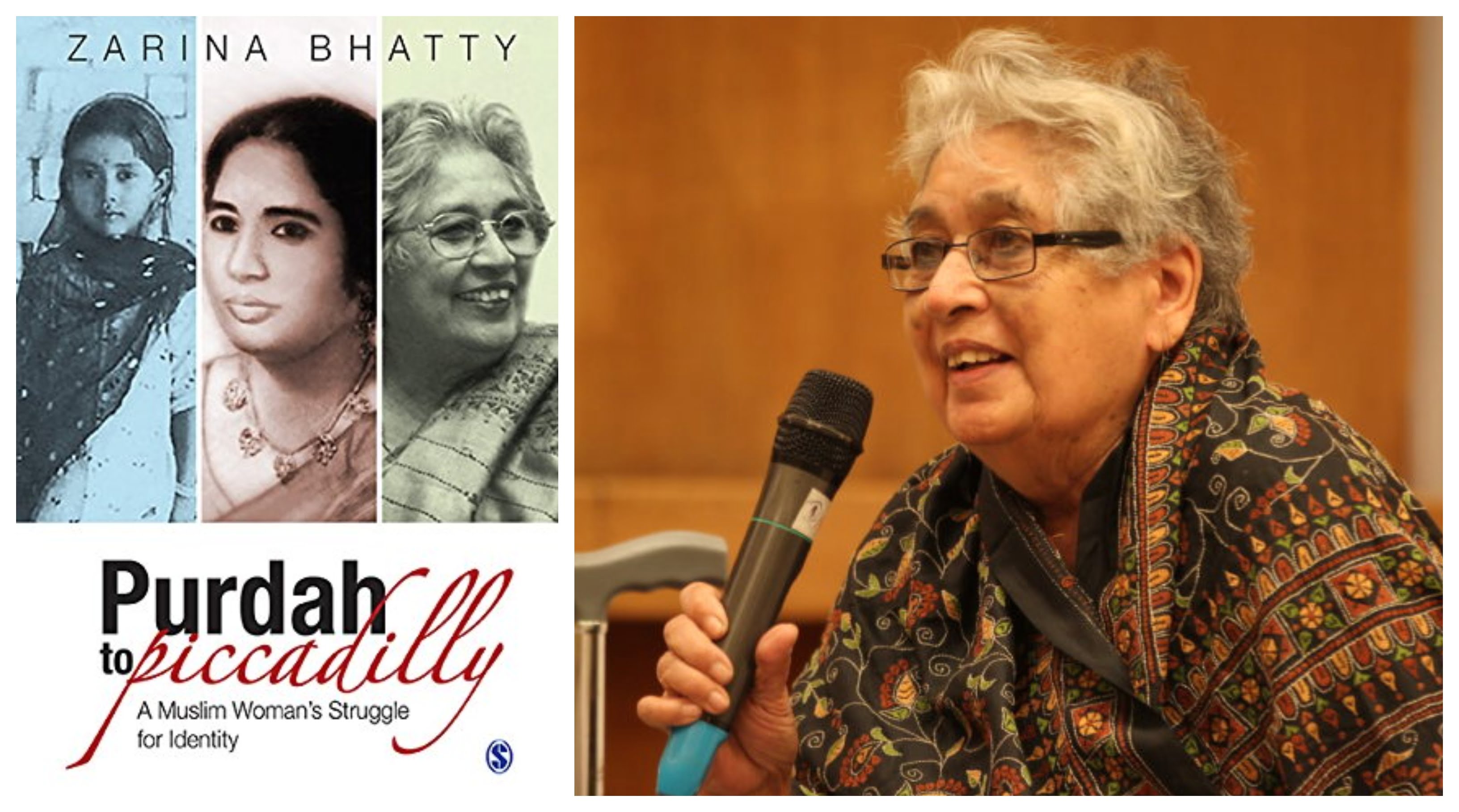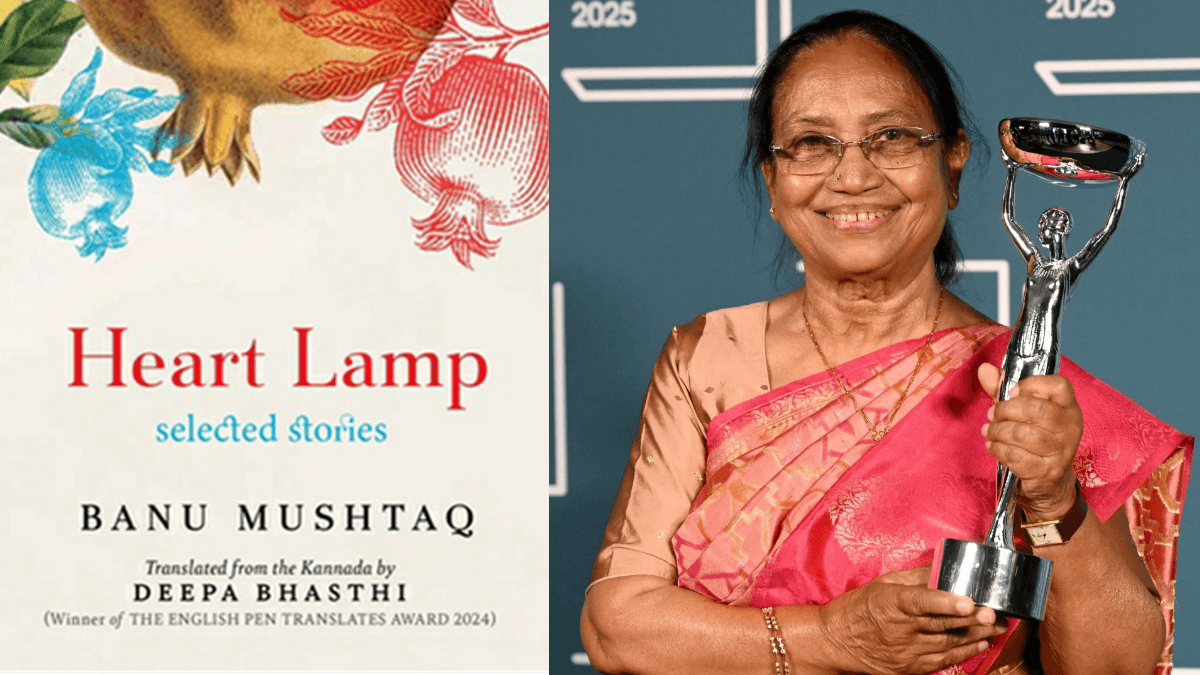Posted by Namrata
“I was expected to sacrifice my talents at the altar of family izzat…”
This line from the blurb of the book, Purdah to Piccadilly by Zarina Bhatty sounds eerily familiar for every Indian woman out there.
Born in Lucknow, the author Zarina Bhatty grew up in a conservative Muslim family which practised the purdah. Documenting her journey from pre-Partition India to going to London for further studies to pursuing a PhD despite facing family opposition, this book is more than just a memoir. As she herself says in the preface of the book, “Memoirs are usually written by distinguished persons such as scholars, philosophers, and artists, who have made important contributions to knowledge, art and culture. I cannot claim any such distinction, and yet I have narrated my life and experiences from my long journey of 80 years.”
Her experiences and struggles of breaking the stereotypes make this a compelling read. Written with sheer honesty, the poignancy of the narrative does break your heart at a lot of places, but towards the end, leaves you inspired and hopeful. Neatly divided into fourteen chapters, each chapter chronicles the important milestones of her life and talks about her trials and tribulations at large.
Zarina Bhatty’s journey started from Lucknow in 1933 where she grew up and did her schooling. In the first five chapters we are introduced to her parents and siblings, her extended family which includes grandparents, uncles, aunts, cousins, moving on to the conservative upbringing she underwent and a brief introduction to Islamic rituals and practices.
Written with sheer honesty, the poignancy of the narrative does break your heart at a lot of places, but towards the end leaves you inspired and hopeful.
Here, she also talks about her ancestral homes in Amethi where her paternal grandparents resided and Rudauli, where her maternal side of the family lived. Taking us through various customs followed by both the sides of the family, including food habits, dress code, superstitions, celebrating festivals and the overall treatment meted to women of the family in general, she allows us to enter a secret chamber of her life. A chamber where a young Zarina keenly observed life, processing all that was happening around her and questioning it all. We witness her transformation from a carefree young girl to a mature and responsible young lady. Somewhere in these years, the seeds of her illustrious career seem to have been sown giving birth to that humanist and feminist in her. It is noteworthy, how the author doesn’t shy away from talking about the practices that she feels is wrong, in the name of religion, witnessed by her in the same tone where she praises the
In the novel, she notes, “As a middle-class Muslim girl, I was considered to be overambitious and almost a lunatic to have such high aspirations like studying abroad; I had a special fascination for teachers who also wrote books because none of my teachers in India had written books. I had such dreams at a time when, at the end of every academic year, my return to school was questionable.” Her never-say-die attitude, zeal and enthusiasm towards life and the desire to do something, to achieve something are infectious! Her energy is palpable in her words when she talks about her dreams. Though she could not fulfil quite a few of them, she never missed a chance to try again at a later age. The adage ‘I aspire to inspire’ suits her befittingly well.
Her family decided to stay back during the Partition which further helped her witness some extreme changes in the society which was undergoing a huge transformation at that time. She also talks about the Muslim personal law and how it impacted the development of Muslim women in India. On the other hand, it is a huge relief that things are changing in that aspect too.
Also read: Book Review: A Life Less Ordinary By Baby Halder
Somewhere in the sixth chapter, under extremely tragic circumstances she gets married to her first husband Hayat at the age of 18 and moves to England. From here, the narrative seems to pick up some pace as you get to see the life of an immigrant Indian in England closely and witness the culture shocks the author endured. For me, as a reader, the first ‘wow’ moment was when she started studying at LSE. Despite all the challenges she faced, the fact that she managed this feat was huge. One can only imagine how much it would have boasted her confidence. Despite facing domestic violence she gathers the courage to start her life all over again. Chasing her dream of being the voice for Indian Muslim women, she never allowed anything to dampen her spirits.
Purdah to Piccadilly can easily be called a coming-of-age story of not one but three generations of women which includes Zarina Bhatty, her mother and Zarina’s daughters.
After completing her bachelor’s in sociology from London School of Economics she chose to teach at the University of Delhi before working for United States Agency for International Development (USAID), International Fund for Agricultural Development (IFAD) and Asian Development Bank (ADB) during her career. Facing all the hurdles that came her way with a smile, Zarina goes onto become the President of Indian Association for Women’s Studies (IAWS) and of Young Women’s Christian Association (YWCA), New Delhi. Sometime in 2015, she was awarded the Devi Awards.
Her contribution to
Purdah to Piccadilly can easily be called a coming-of-age story of not one but three generations of women which includes Zarina Bhatty, her mother and Zarina’s daughters. How they struggled to educate themselves despite facing resistance at home, how they tried to balance the rope walk expected out of every woman of maintaining a balance between home and work and how they never allowed their past to define their present. Rather, they made the most of all that life presented them with and never complained about the lack of anything therein.
In the fourteen chapters, the story of her life holds a lot of emotional connect for every reader however there are a lot of places where the narrative might seem to drag. Given the fact that it is a memoir and not a fictionalised account of it, this is something that can be easily ignored. Her story holds promise and is highly inspiring in every aspect.
Also read: Book Review: I Want To Destroy Myself By Malika Amar Shaikh
The last lines from her memoir encapsulates the whole reason behind her writing this memoir,
“Himmat-e-mardam, madad-e-khuda”
“May we all, especially women have the strength to move ahead despite the obstacles. I have done it, and so can you.”
Namrata is a lost wanderer who loves travelling the length and breadth of the world. She lives amidst sepia toned walls, fuchsia curtains, fairy lights and shelves full of books. When not buried between the pages of a book, she loves blowing soap bubbles. A published author she enjoys capturing the magic of life in her words and is always in pursuit of a new country and a new story. You can follow her on Facebook, Instagram, Twitter and her blog.
About the author(s)
Guest Writers are writers who occasionally write on FII.




